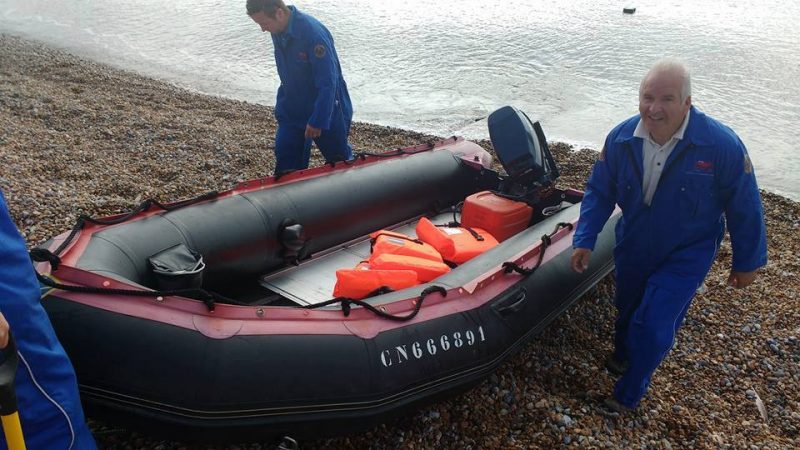This week, controversial legislation targeting ‘small boat’ crossings in the English Channel has come into effect, and under the provisions of the Nationality and Borders Act (which received Royal Assent in April) anyone caught piloting a vessel carrying asylum seekers towards our coastline could face life in prison if found guilty.
The new laws have been described by the Home Office as “the biggest overhaul of the asylum system in decades”, and these include increasing the maximum penalty for illegally entering the UK or overstaying a visa from six months to four years in prison, and new powers for immigration officers to search for people trying to enter the country. However, faith leaders and campaigners have criticised the tough measures included in the act.
Home Secretary Priti Patel said: “This is one of the most crucial milestones in delivering on our promise to the British public to take back control of our borders.
“While there is no single solution to the global migration crisis, these reforms which came into effect today (June 28) play a vital role in overhauling the broken asylum system as we put our new plan for immigration into action.
“We will continue to work tirelessly to ensure that we offer protection and sanctuary to those in genuine need, but these new measures will enable us to crack down on abuse of the system and the evil people-smugglers, who will now be subject to a maximum sentence of life imprisonment as a result of this law coming into force.”
Latest government figures show that more than 500 people crossed the Channel in small boats in the week to June 26.
Earlier this year, more than 1,000 faith leaders signed an open letter to the prime minister expressing their concern about the new legislation, which includes provision for asylum seekers to be processed overseas rather than here in the UK.
“While there is still conflict and injustice in the world, there will always be desperate people needing to seek sanctuary from war, persecution and suffering,” they wrote.
“We cannot close our door on them, but this bill does just that.
“We assert that the values that bind UK citizens together, especially those concerning human dignity and life, will be fundamentally damaged by this bill.”
Image Credits: Carol Macdonald .




Thanks to Nick for attempting a balanced report on this emotive subject.
The truth is in the first sentence, ‘vessels carrying asylum seekers towards our coastline…life imprisonment.’
Asylum seekers fleeing death and repression, can travel to any safe country by any possible means, under international law. If the government was serious about their concerns for refugees’ safety they would give them ferry tickets.
The processing could then take its legal course in a safe centre here, not in a prison or in Rwanda.
Emotive indeed.. except for the fact that these people have already passed through a country (France) which neither poses a risk of death or repression! So, these people are in fact illegal immigrants and should face the consequences of illegally entering the UK.
It’s certainly emotive, but you’re otherwise mistaken, I’m afraid, Jon: There’s actually no legal obligation for refugees to settle in the first safe country. That’s a popular strain of disinformation that a lot of folk have taken as fact.
If you have family in the UK, and if you speak English, you want to come to the UK. It’s as simple as that. It’s the legacy or Empire, the dividend (or debit, depending on perspectives) of soft power and global cultural influence. We’d do the same…
‘These people’, by the way, are indistinguishable, as far as I can see, from people from Hong Kong or Ukraine. Aren’t they? There’s so much to say about this topic, but the final point worth mentioning is that the Home Office’s own statistics suggest most people crossing the Channel are ultimately granted asylum, so they’re generally not devious parasites they’re ordinary human beings in great need. We have a moral and legal obligation. One day we might, heaven forbid, need to call on such tender mercies ourselves…
This bill continues to denigrate our compassion, humanity and responsibility to all the planet and its creatures, human and otherwise. How did we let it get to this state?
I fail to understand why when we have so many shortages of people in many spheres of work why folk should be kept in detention centres and not allowed to fill many available jobs. It would be far more respectful of their dignity and value. With modern technology there would be no difficulty in keeping track of folks whereabouts.
Why? In a word, ‘racism’. Not necessarily overt racism, but racism nonetheless. Sometimes it’s because of ignorance, but sometimes it’s because of English exceptionalism. Some aspects of being English are no longer defensible.